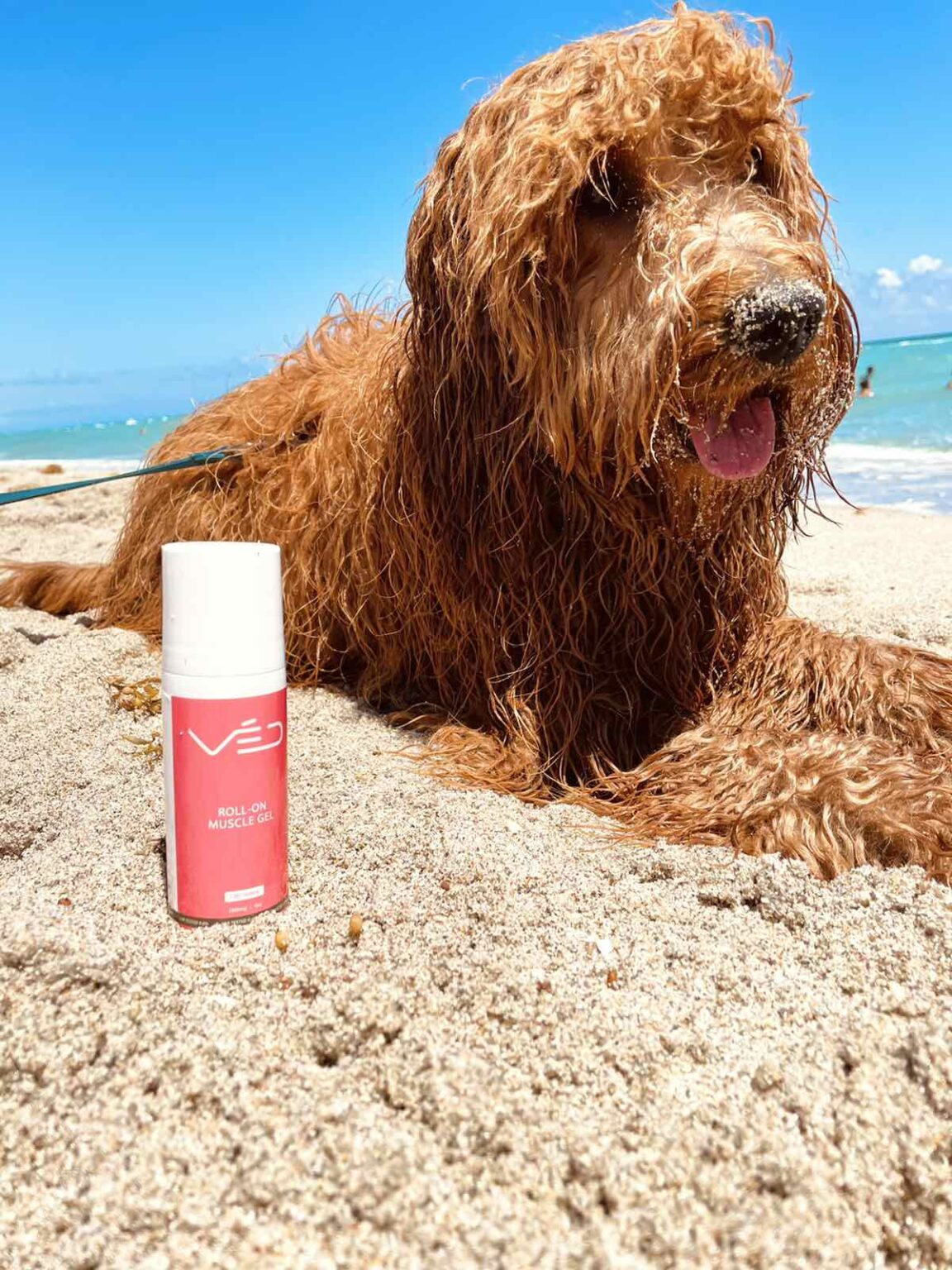
There is a lot of CBD questions because CBD has undoubtedly taken over the wellness world in the recent months, especially in the United States. The health product is literally everywhere from athletes using it in their recovery routines, spa centers using it for facial treatments, all the way to the beauty industry which is using it in lotions, moisturizers, etc. The increasing popularity of the product is due to the fact that people become more and more enlightened on the endless benefits that CBD offers. Yet, many people still do not know what CBD actually is, how to take it, and how to make sure that the products they are buying are with the highest quality.
When talking about CBD (Cannabidiol) we need to realize the key wellness benefits and scientific characteristic of the chemical compound. Cannabidiol has a unique chemical makeup that turns it into a natural superstar in the wellness community.
Alternatively, THC (Tetrahydrocannabinol) has a similar chemical compound. However, it falls in the group of medicine and opium because of its ability to make you high. The illustration shows the difference between the two chemical compounds.
CBD and THC have the exact same chemical makeup: 21 carbon atoms, 30 hydrogen atoms, 2 oxygen atoms. They are basically identical twins. Yet, they have a single microscopic difference of the arrangement of a single atom as shown to the right.
Cannabidiol (CBD) is non psychoactive compared to its cousin Tetrahydrocannabinol (THC) which is found in marijuana and is the cannabinoid that makes you high. On the other hand, CBD is a chemical compound found in the nature inside the cannabis sativa herbs.
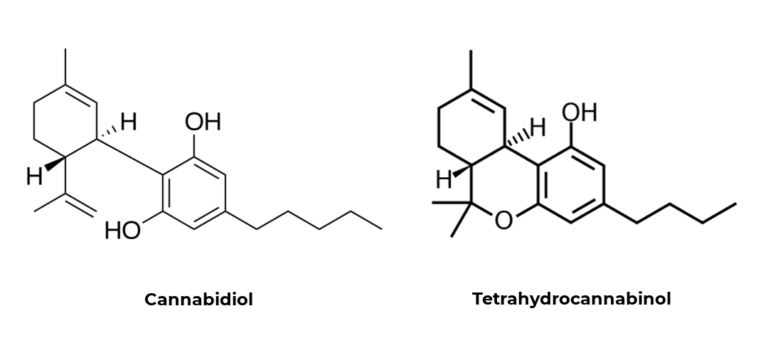
However, that single atom makes a huge difference in how the compounds interact with our body’s Endocannabinoid System (ECS). ECS is a network of receptors that interact with cannabinoids to maintain vital functions throughout our body.
There are two cannabinoid receptors called CB1 and CB2. CB1 receptors are found abundantly in regions of the brain responsible for mental and physiological processes. Some of the being high cognition, memory, emotion, and motor coordination. CB2 receptors are found throughout the immune and the central nervous systems.
Now this is where the microscopic difference comes into play. The way the CB1 and Cb2 receptors interact with CBD and THC is completely different due to their differences in molecular structure.
Both CBD and THC bind with the CB2 receptors. However, they interact differently with the CB1 receptors. Because of its atomic structure, THC binds directly with the CB1 receptors. This creates signals that are sent directly to the brain, resulting in the feeling of “getting high”.
On the other hand, CBD does not bond directly with the CB1 receptors,. In fact, its presence can even counteract the bond between THC and CB1, neutralizing the psychoactive effects of THC.
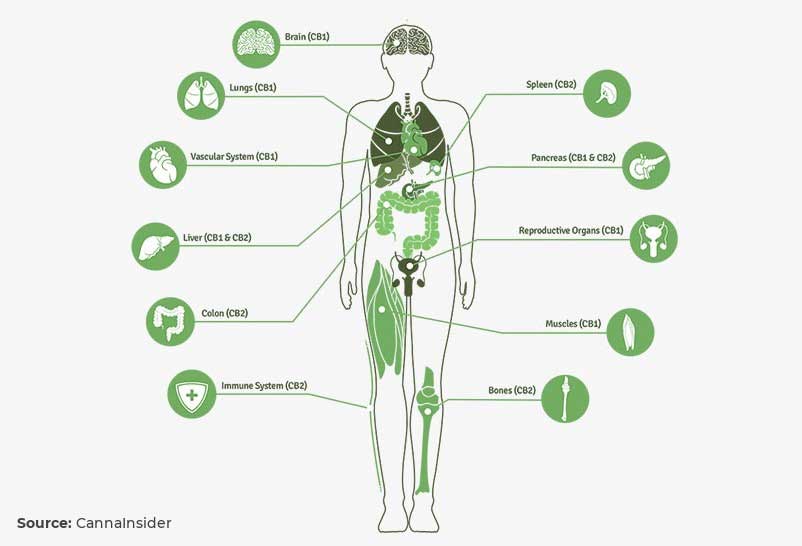
Cannabidiol is legal in almost all European countries. Most countries have a limit for THC in CBD products for less than 0.2%. The European Union classifies CBD as a Novel Food (Foods not used in the union before May 15th 1997.) According to European law, industrial hemp (any plant with a THC level of > 0.2%) is legal in Europe . Industrial hemp is also widely used for extractions of fiber, seeds for food, and extraction of CBD.
CBDVed is created for athletes by athletes. This is why we make sure that our products are compliant with the World Anti-Doping Agency (WADA). We carefully check for every ingredient in our products to reassure that it is not on the list with banned substances. The list is getting longer and longer every year. Therefore, it is crucial for athletes to be able to find products that can help with recovery and performance . Yet, still be natural and safe. Section 8 from the WADA 2021 Prohibited list excludes Cannabidiol aka CBD from the banned substances as shown below.
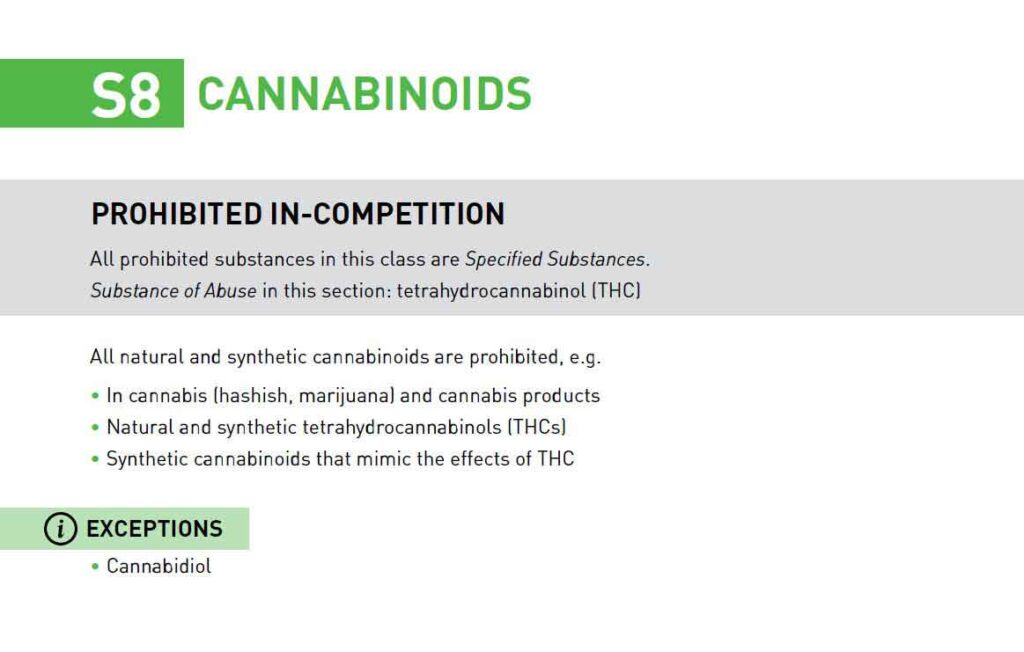
1. Label: If the CBD product is classified as a dietary supplement, it should have information on the backside. Either with an FDA disclaimer or a warning section.
2. Dosing: When taking CBD you need to consider if it is full spectrum or Isolate. Full spectrum contains other cannabinoids such as cannabidivarin or cannabigerol. This is important. When used together, they create what is called the entourage effect. This makes them more effective than any one of them used alone. On the other side, Isolate contains pure CBD. The difference is that some people might need only 10mg of full spectrum. Therefore, taking 80-100mg of isolate might not have the same effect.
3. Has the product been third party tested? Your CBD products must be tested by a third party laboratory to determine and confirm the label’s truthfulness. Look for a certificate of analysis or quality assurance stamp from a third party. A third party means a company that is different than the one offering the product. If the label of the product does not provide information, check the company’s website for lab testing.
4. Are there claims that say the product will cure any disease? If yes, then pass. Any company that is making claims for curing a disease with CBD is either willing to break the rules or does not know about these rules.
5. Does the product have a batch number? A batch number is a number that verifies the product is in good condition. Similarly to food items ( meat, lettuce) there is a number which the buyer can check in case of a recall. The same should hold true for CBD products. A batch number is an indicator that the company is following good manufacturing practices.
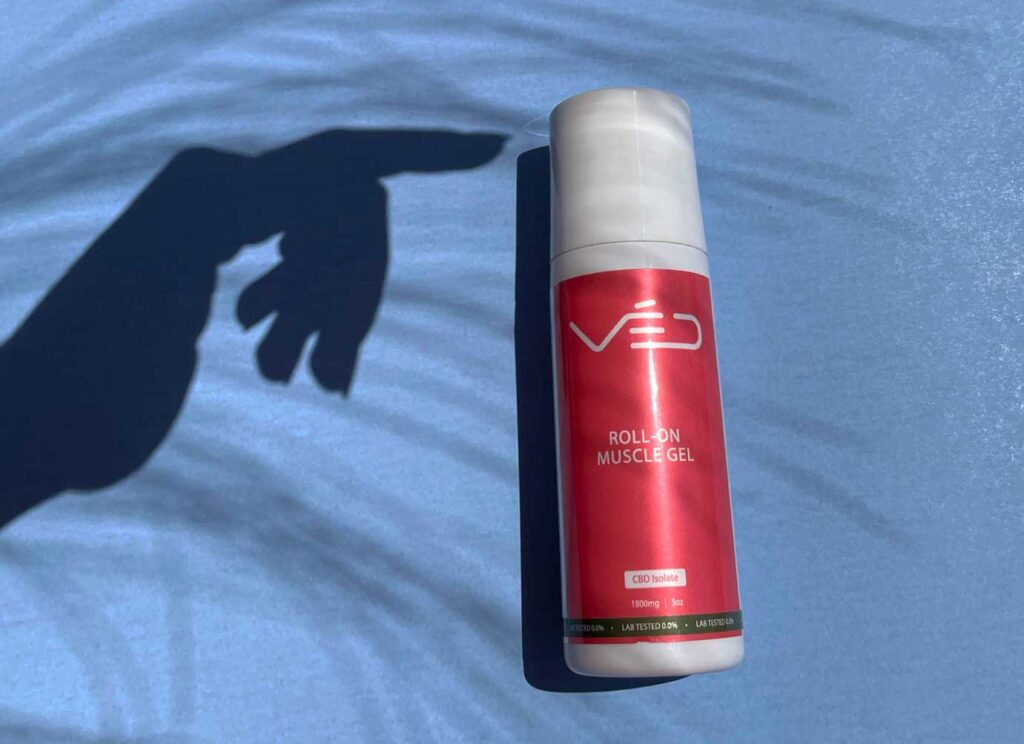
Short answer no. Long answer the product needs to be 100% isolate, third lab tested and contain no added THC. This is why you need to check the spectrum type and quality of Cannabidiol products you consume.
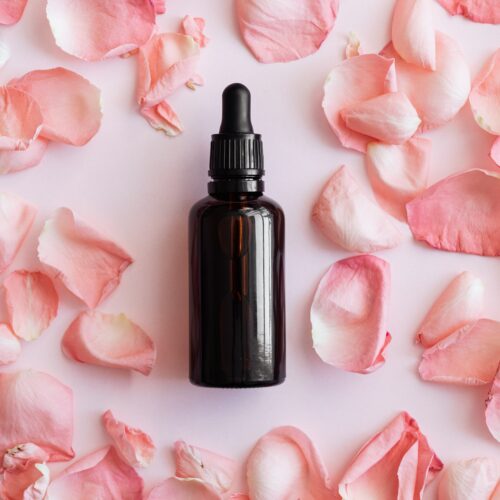
Generally, Cannabidiol products are safe and they could show benefits for pets. But just as you do research for yourself, you should do for your animal too before you give them anything.
